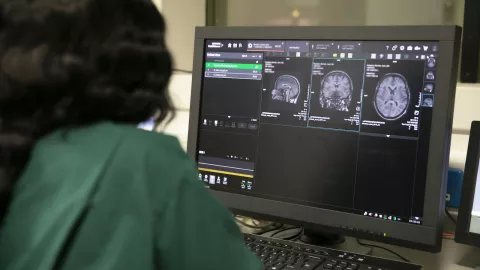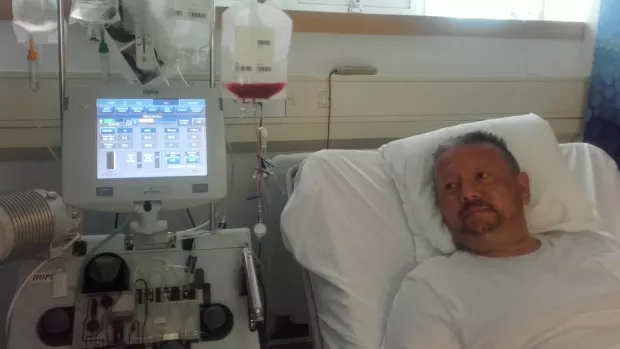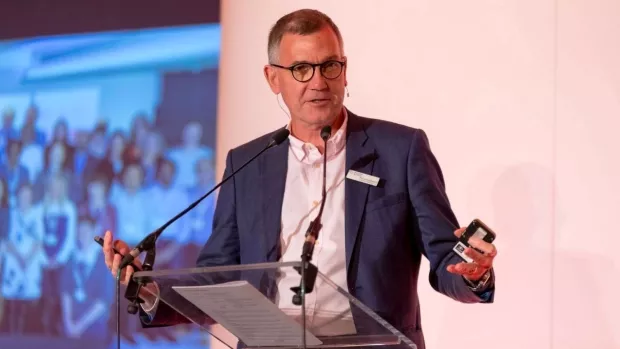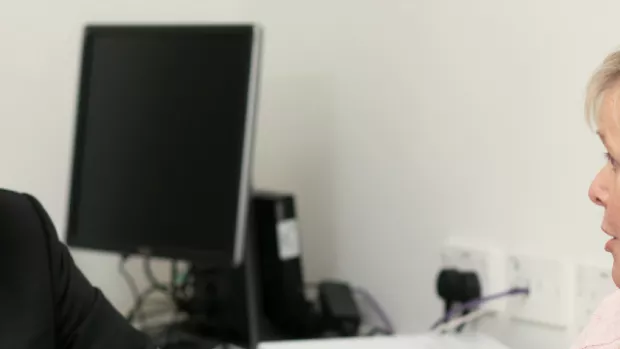
Leading experts get together to discuss HSCT at AIMS Summit
We were excited to attend the Autoimmune Disease and Multiple Sclerosis (AIMS) charity fifth birthday summit in November.
Madeleine and Ruth from our policy team heard talks from leading experts in haematopoietic stem cell transplantation (HSCT) for MS, and insights from people with MS who’ve undergone the treatment.
Accessing HSCT in the UK and abroad
Professor Basil Sharrack and Professor John Snowden, lead investigators on the pivotal UK StarMS trial, gave updates on the progress of the study. This trial is currently underway, and recruitment is due to end in April 2024. The trial compares the safety and effectiveness of HSCT to other highly effective disease-modifying therapies (DMTs).
Conference speakers discussed that some neurologists can be hesitant to refer people for HSCT. Neurologists are often less familiar with the treatment and don’t feel confident recommending it to their patients. Varying attitudes towards HSCT from the neurology community can result in confusion and uncertainty for patients. Agreement on guidance across the UK is crucial so that people with MS get a consistent approach from care teams.
International presenters Dr Denis Fedorenko and Dr Guillermo-Ruiz Arguelles gave walk-throughs of the HSCT procedure and follow-up care provided by their private clinics in Russia and Mexico.
A history of and future of stem cell research
A personal highlight was the keynote speech from Professor Richard Burt, a pioneer who delivered the first US HSCT therapy for MS in 1995. He also treated actor Selma Blair in 2021. Professor Burt gave a thorough historical overview of the treatment and its development. He also talked about the potential of ‘pluripotent’ stem cell research. Pluripotent stem cells can develop into many different cell types. So future treatments might be able to regrow damaged nerve cells.
Professor Gavin Giovannoni discussed early research into CAR T-cell therapy (chimeric antigen receptor t-cell). This type of therapy aims to reprogramme the way the immune system responds in MS. He also addressed the issue of ‘smouldering MS’: where people are treated with DMTs, but progression has continued despite no relapses or signs of lesions.
The MS Society and HSCT
During the conference, we co-presented a session with the MS Trust. We talked about our work to support access and decision-making around HSCT for MS.
We discussed our role in developing evidence-based information on HSCT, sharing stories from people who’ve had the treatment, and supporting and funding research. We’ve advocated for HSCT to be available on the NHS in the UK. And we were part of an NHS England working group that developed the guidance making HSCT available on the NHS in England for the first time.
We also talked about how access to HSCT on the NHS is still poor. Many people who are eligible according to current guidelines still can’t access it.
And we told the audience about how we played a key role in bringing the people who developed the StarMS trial together. A stronger evidence base can support better access to HSCT.
Researchers say there are still questions about HSCT and MS that science needs to answer. StarMS and other randomised controlled trials – the gold standard of research - are exploring some of these. In the long term, knowledge gained from this type of trial about how HSCT compares to other very effective MS treatments could:
- give clinicians more confidence to recommend HSCT
- help convince the NHS to make it more widely available across the UK
- make it easier for people who could benefit to get the treatment
Video content from the day will be available on the AIMS website in 2024.




